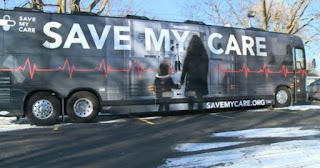ACL Fact Sheet: Preparing for Medicaid Changes When the Public Health Emergency Expires
From the Administration for Community Living:
Government agencies have started reviewing policies that were put in place to meet the needs of states, localities, and the public during the height of the COVID-19 pandemic. When the federal declaration of a public health emergency (PHE) expires, many of the flexibilities initiated during the PHE will need to be rolled back. This return to pre-pandemic operations will have far-reaching impacts for older adults and people with disabilities.
Changes in Medicaid enrollment and eligibility will be particularly important—and potentially confusing or disruptive—for current enrollees. The aging and disability networks can prepare in advance for the coming changes to best meet the needs of people who rely on Medicaid coverage for essential services and supports.
The Families First Coronavirus Response Act (FFRCA) prohibits states accepting extra Medicaid funding from disenrolling anyone from their Medicaid programs (with limited exceptions) during the PHE. While the Biden Administration has not officially said when the PHE will end, it has assured states that they will receive at least 60 days of advance notice. Upon the end of the PHE, states will have 12 months to evaluate the eligibility of virtually everyone in their Medicaid programs to make sure they still qualify for the program.
ACL has developed a new fact sheet to help grantees prepare for these eventual changes. The fact sheet describes how FFCRA impacts Medicaid and details five things the aging and disability networks should know:
- Medicaid beneficiaries should make sure their Medicaid agency has their current contact information. They should check their mail and be sure to mail back any Medicaid forms they receive.
- All renewal forms and notices must be accessible to people with limited English proficiency and people with disabilities.
- Many people who are no longer eligible for Medicaid will have other coverage options.
- If someone is disenrolled or their Medicaid coverage changes and they disagree with their state Medicaid agency’s decision, they can appeal.
- The end of the Public Health Emergency may lead to an increase in utilization of services provided by Older Americans Act programs, Centers for Independent Living, Assistive Technology Act programs, and other ACL grantees.

